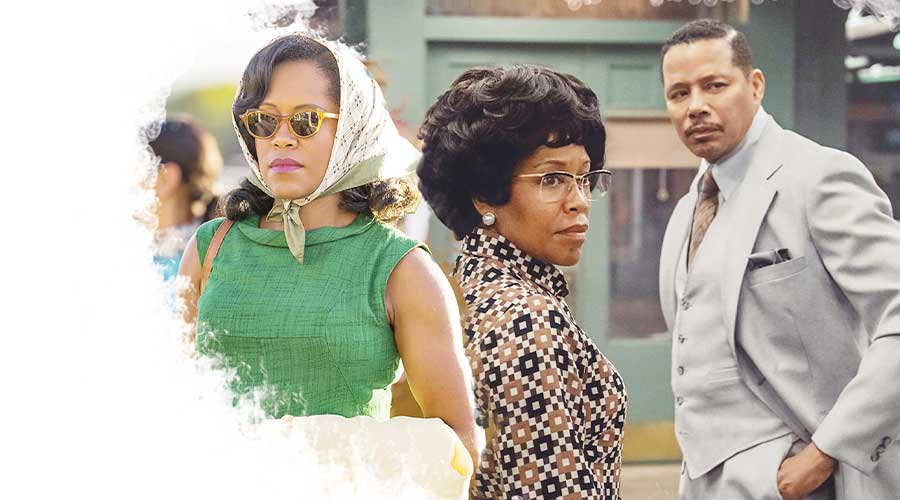What’s to watch on Netflix?
- 27 Apr - 03 May, 2024

Oscar-winner Regina King gives a bold, broad performance in Shirley, a new Netflix biopic of Shirley Chisholm, the first Black woman to be elected to the United States Congress. Directed by fellow Academy Award-winner John Ridley, the movie doesn’t take the cradle-to-the-grave approach that many biopics default to, but focuses instead on a particular period in Chisholm’s life – her campaign to win the Democratic nomination for the 1972 Presidential election.
Shirley is too unambitious to do justice to King’s commanding central performance. Filtered through her lens, Chisholm is fierce, ambitious and occasionally salty. But you can’t shake the sensation that you’re being presented with a fully formed person from the very first frame.
Also written by Ridley, the screenplay doesn’t give Chisholm much of an arc. She’s strong-willed in the first scene, and she remains just as resolute in the film’s final moments. “Don’t be humble. Humility in successful people comes across as its own kind of arrogance,” she says, ironically enough, to a man that she is interviewing to be her advisor. The first act of the movie is largely devoted to Chisholm putting together her dream team – the men (and one woman) who are hired to help her navigate her way through the vile waters of electoral politics. She meets every challenge with her head held high. But to the film’s credit, it doesn’t always come across as such. There are mentions of Chisholm essentially betraying her own mentor, and actively sidelining her husband.
Played by Michael Cherry, the husband gets one of the film’s rare quiet moments all to himself, when he confronts her for having deliberately brushed him under the rug. A title card at the end of the film reveals that Chisholm divorced her husband some years later, and married one of her campaign advisors some months after that. Played by Terrence Howard, this character is a prominent member of her core team, but at no point does the movie hint at a brewing romance between them. The title card at the end effectively serves as a plot twist.
Every scene has its own internal stakes – Chisholm needs to convince the men in power to support her vision, inspire youngsters, and recruit aides. And during all this, the people around her keep chanting how special she is. It is the film’s own fault that Chisholm’s dreams seem a little delusional in several scenes. Because you barely know her, you have no choice but to take what she says at face value. When she declares that she’s fit to be president, for instance, you aren’t encouraged to ask questions. You take her confidence as a matter of fact, even though the movie hasn’t shown us how she works, what she has achieved, or how she wants to transform the country in the unlikely event that she’s actually elected. We witness her managerial skills, but little else. Curiously, however, the film itself doesn’t pretend that Chisholm ever stood a chance. And this makes her entire campaign seem all the more foolhardy.
Shirley could’ve been reduced to a series of scenes in which Chisholm delivers lectures against a (poorly concealed) green screen backdrop. But the film’s breakneck pace doesn’t give you enough time to fume over these fumbles. An assassination attempt that could’ve formed the basis for an entire film in the hands of another filmmaker is reduced to a split-second moment within a montage under Ridley’s direction. There are more important things on the docket, he seems to be saying impatiently.
But more egregiously, Shirley fails to answer a very basic question about her subject. Why, for instance, did a regular schoolteacher from Brooklyn seemingly wake up one day and decide to contest for the highest office in her country. She didn’t do it simply for the sake of winning; that much is clear. Nor did she do it to uphold her political ideologies. We never quite understand her position on most matters beyond those that are closest to her. Chisholm did it, the movie suggests, just to show that it could be done – that a Black woman could make hundreds of middle-aged white men shake in their shoes at the very sight of her, that she could reshape they perceive those who look like her, and in a few years, perhaps consider voting somebody like Barack Obama into power. And for these noble intentions alone, Shirley gets a pass.
COMMENTS